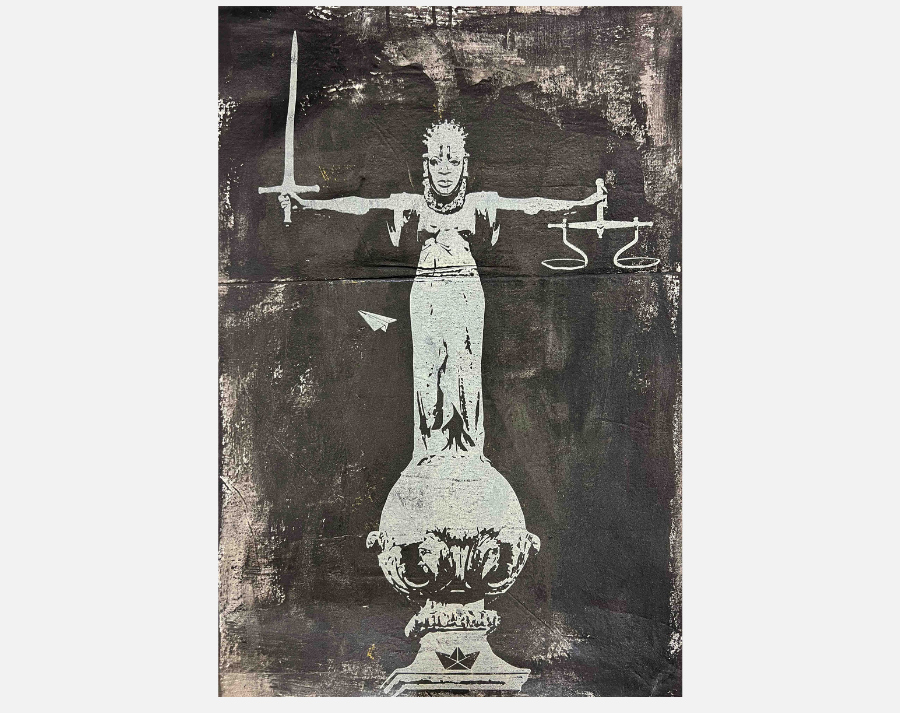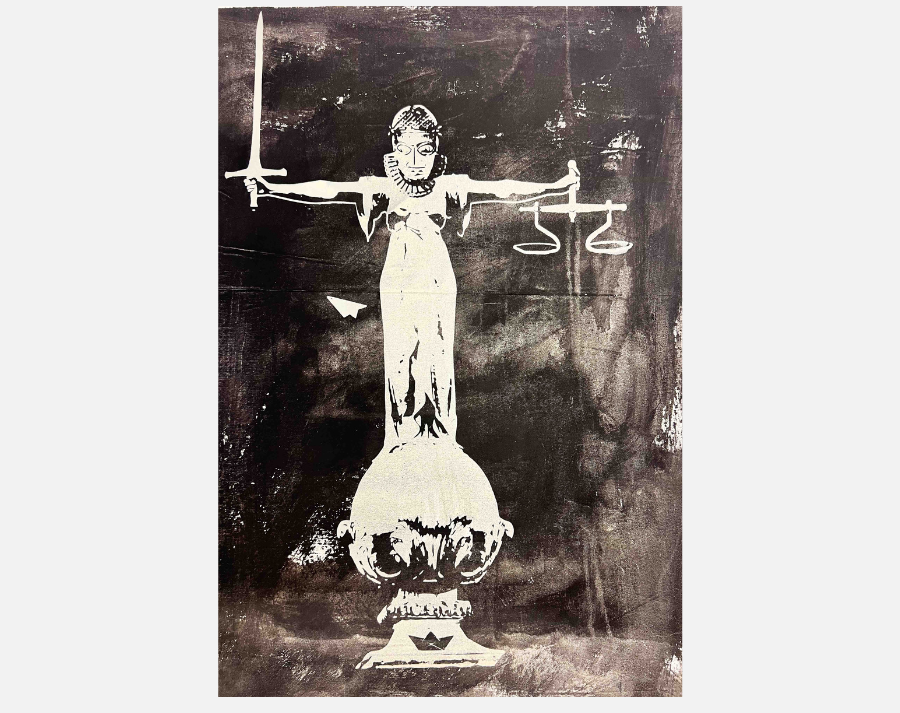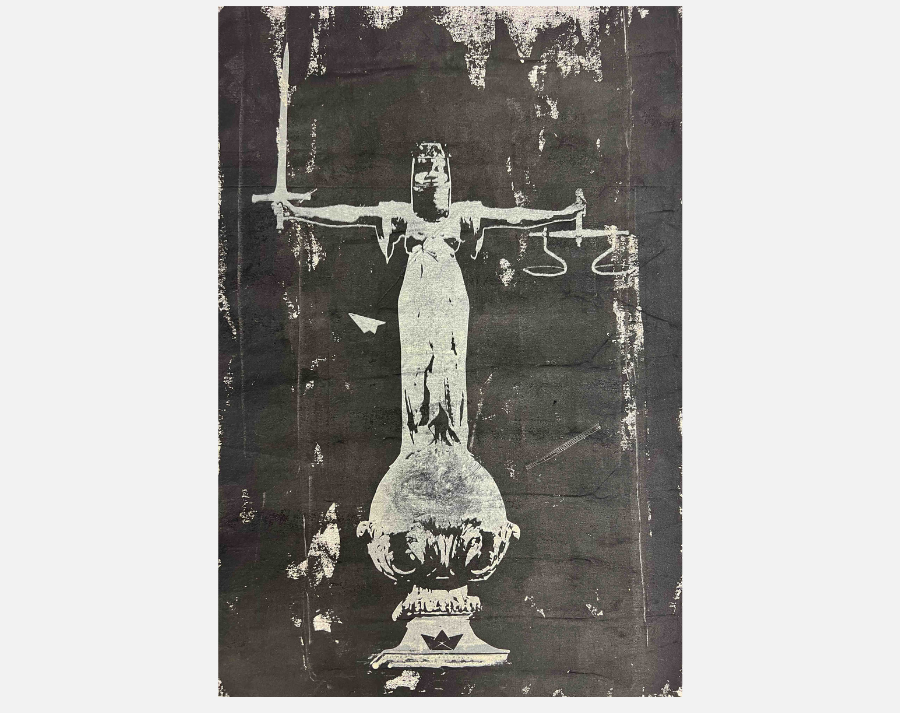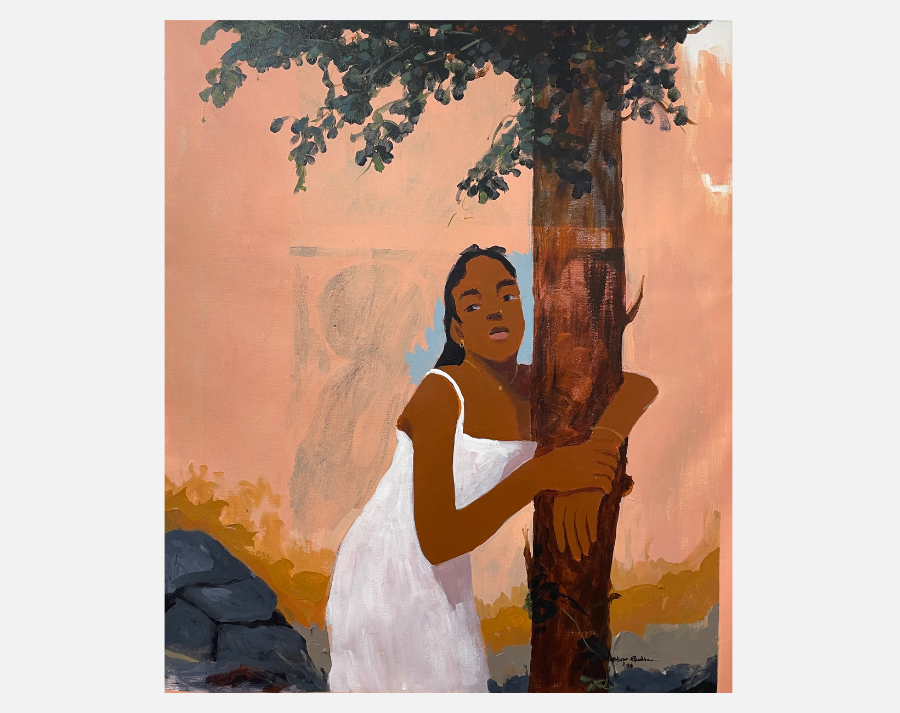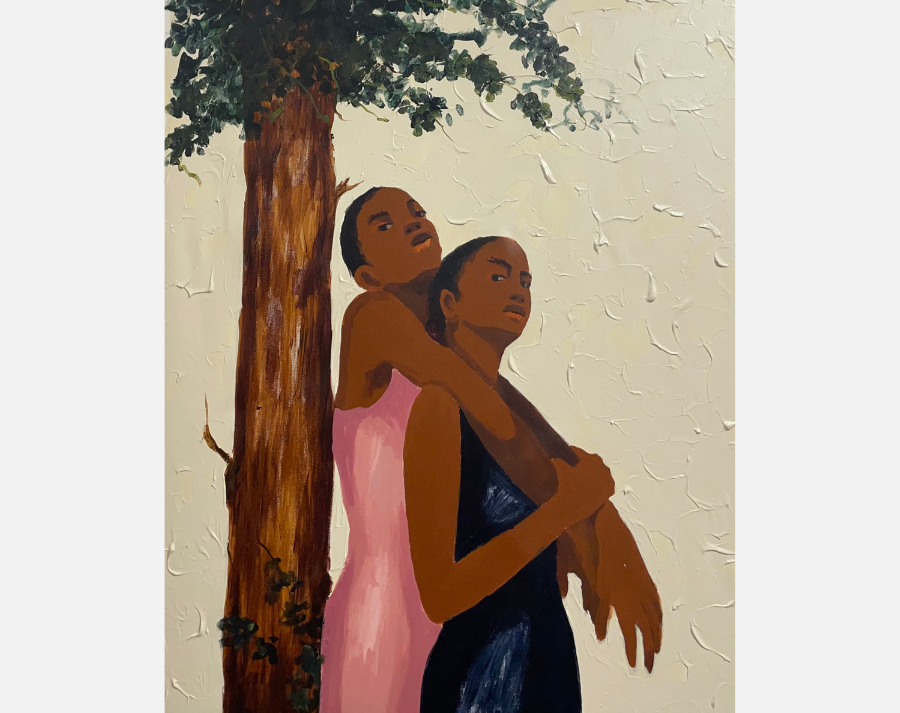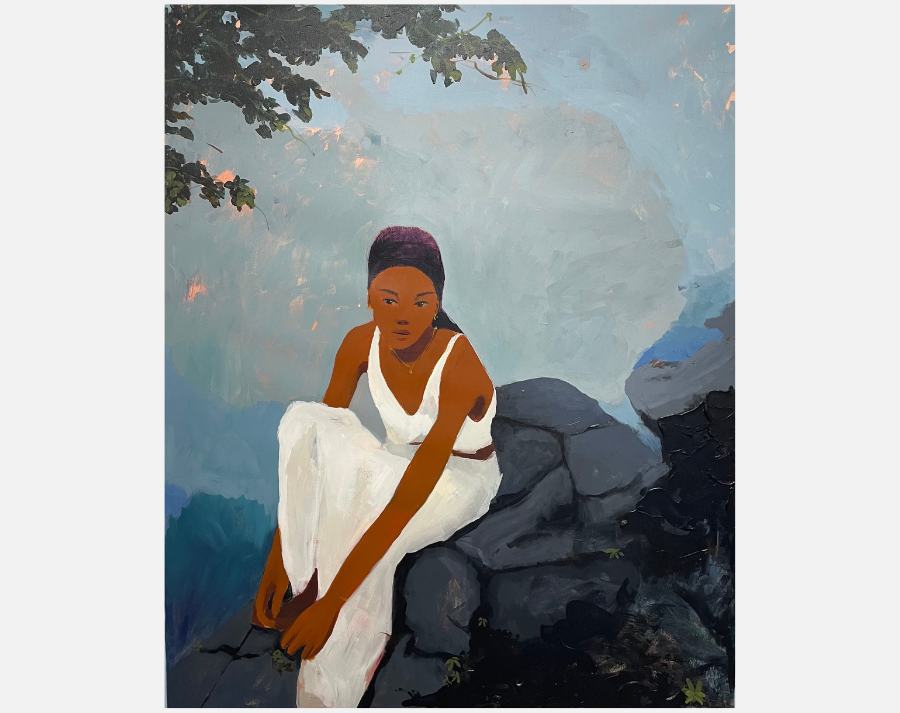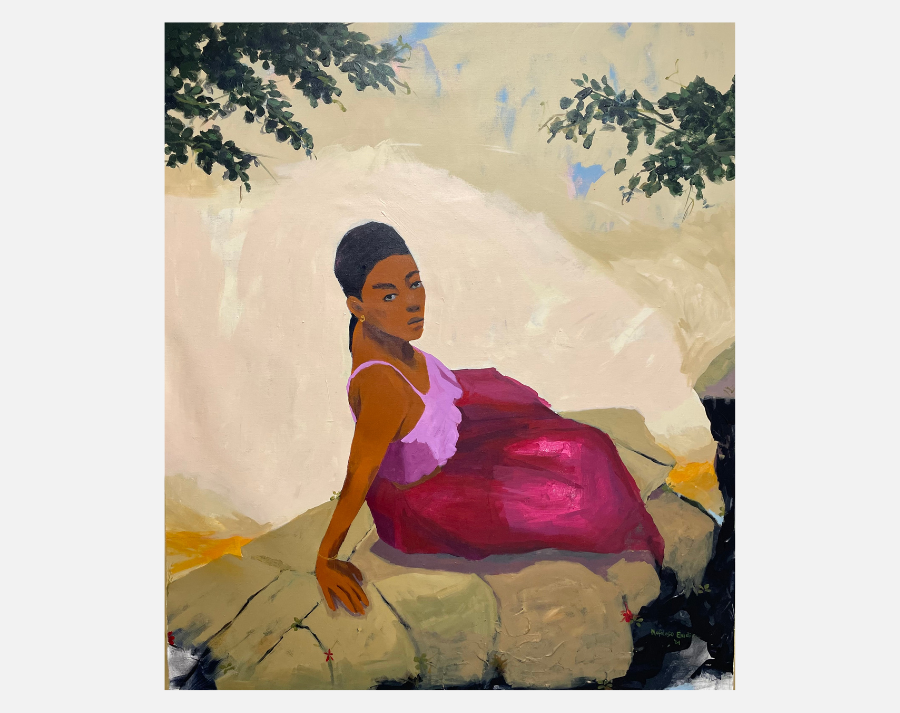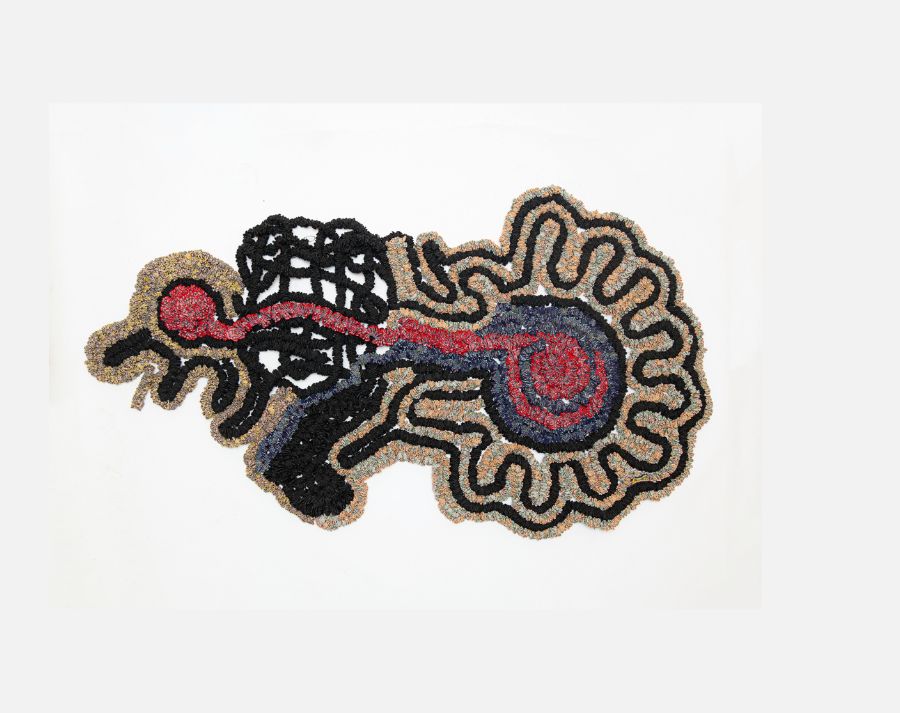
What am I missing, 2024, Acrylic,charcoal on canvas
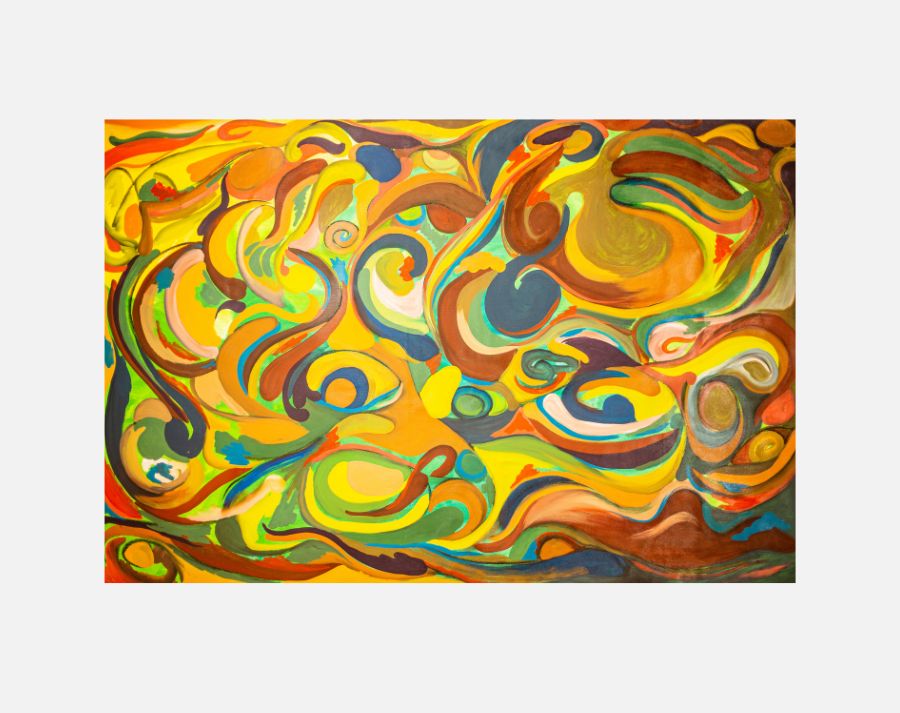
S.II, 2022, Acrylic,charcoal on canvas
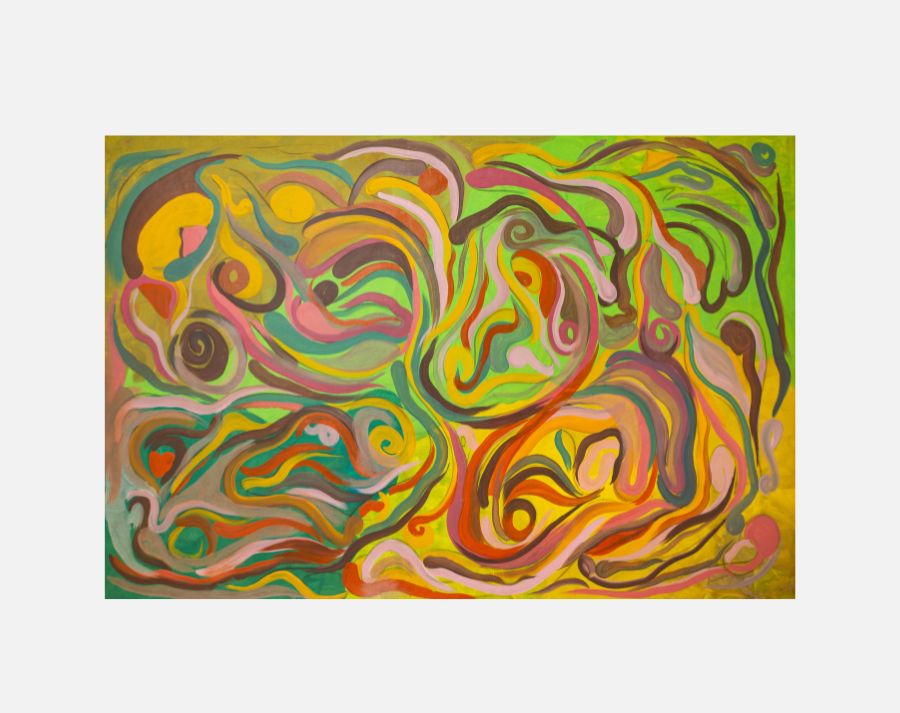
S.I, 2022, Acrylic,charcoal on canvas
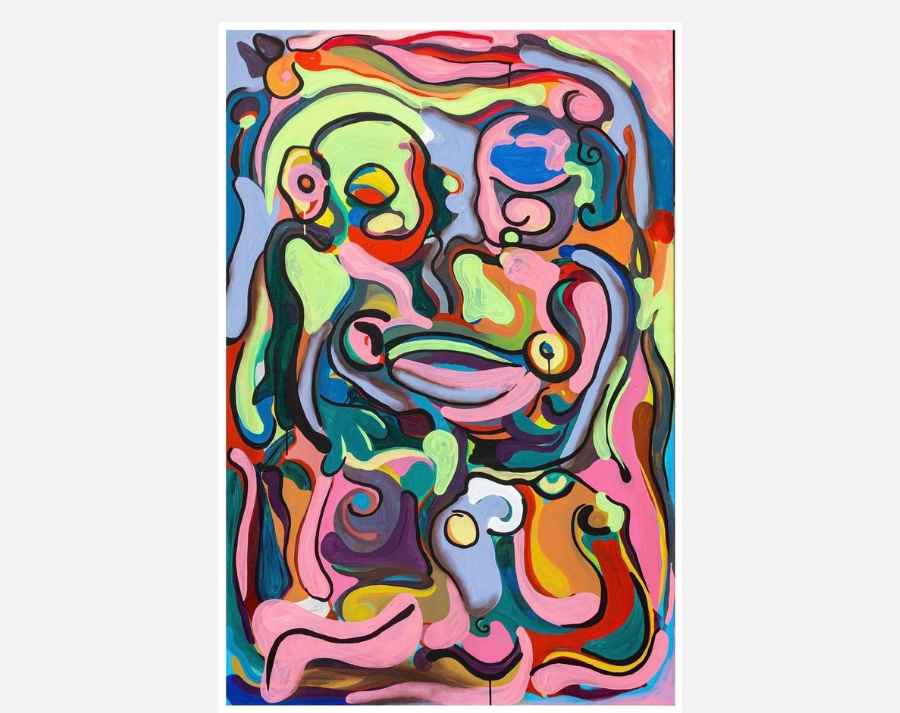
Nduka Ikechukwu’s contributions are particularly emblematic of this theme. Inspired by his Igbo heritage, Ikechukwu uses the strap belt—a simple yet potent symbol in his community—as a metaphor to explore themes of connectivity and continuity within the Igbo apprenticeship system. His colorful tapestries, informed by ideologies such as Ogbuefi, Akụluonọ, and Ịgba Boi, speak to themes of power, community support, economic strength, and the political dynamics of giving back. These works do not merely represent; they invite viewers to ponder the strength found in unity and the intricate dance of tradition and personal identity.
... Hamed Maiye's ongoing series, "Fertile Ground," draws inspiration from Junichiro Tanizaki’s "In Praise of Shadows," exploring the significance of shadows in Japanese architecture as fertile spaces that hold the potential for growth. Reflecting on his heritage as a descendant of fabric and lace merchants, Maiye infuses his work with lace elements, unraveling its intricate history from a symbol of class in Victorian times to a common feature in diaspora homes. His work is a deep dive into the shadowed spaces of memory, history, and growth, inviting viewers to uncover the layered narratives embedded in everyday materials, particularly lace, and its complex ties to social and economic histories, including its connections to the slave trade.
Nana Danso's "Sexual Intentions," a series that captures the initial sparks of life—conception, gestation, and the tensions of creation, uses vibrant colors and fluid forms to transcend the physical and touch upon the emotional and psychological depths of human creation. His work celebrates the miraculous synergy of existence, where chaos and intentionality fuse to forge new life.
Mofoluso Eludire presents "Adapting Spaces," informed by her personal migration experience. This series explores the concept of adaptation, not merely as a physical relocation but as the emotional and social connections formed in new environments. It highlights how a sense of belonging transcends geographical locations, rooted instead in the people and communities we connect with. Her work invites us to consider the fragmented thoughts and emotions experienced during transitions and the communal spaces that help shape our identities.
Joseph Ijoyemi's "Free the Obas Series" leverages archival materials and historic objects to explore identity, heritage, and cultural memory through the lens of restitution. Employing printmaking and other mediums, Ijoyemi recontextualizes these materials to express untold stories and new perspectives. This transformative process not only gives voice to marginalized narratives but also sparks dialogues that bridge colonial history with contemporary imagery, challenging viewers to reimagine and reinterpret past narratives with fresh relevance for today's world.




